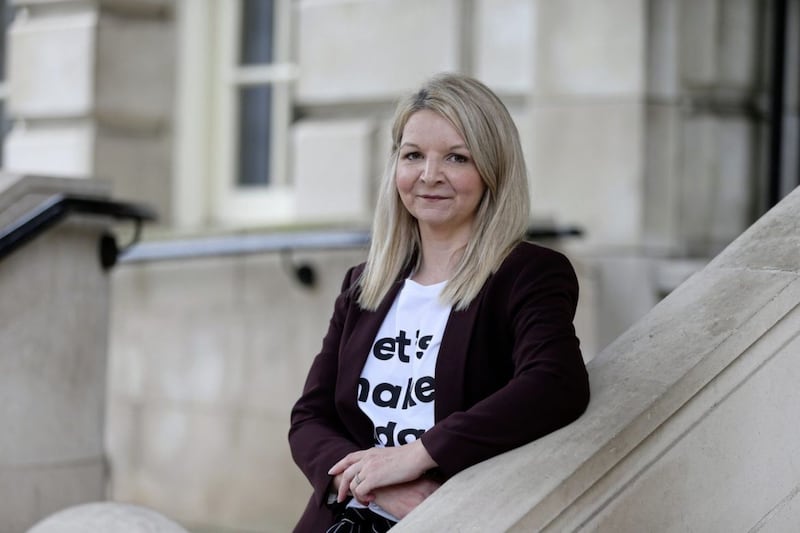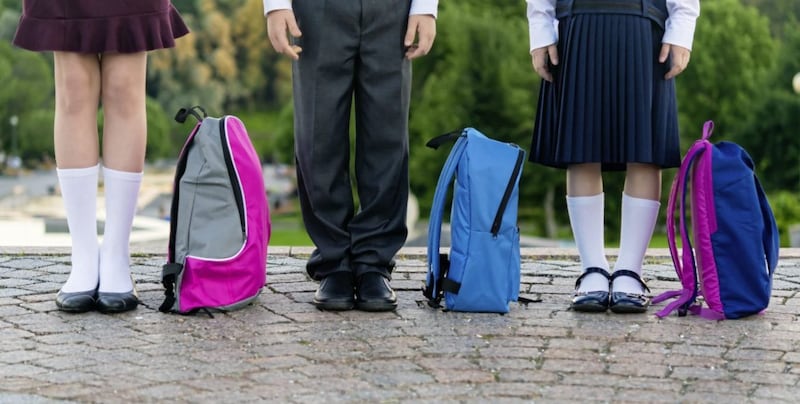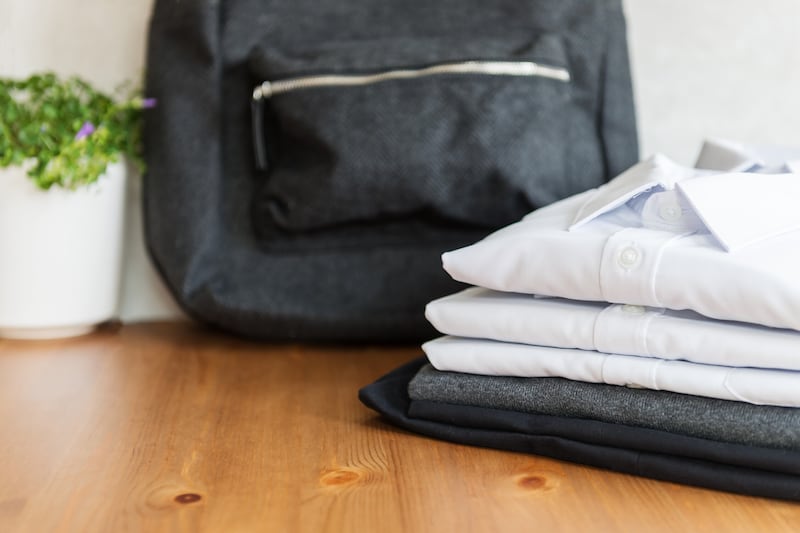THE autumn term is often a time of financial stress for parents.
Parents spend an average of £378 on a post-primary child's school uniform and £173 on a primary child's uniform, according to a recent survey by the Parent Engagement Group.
But the yearly uniform grant, which comes under similar eligibility criteria to free school meals, only covers a fraction of the cost.
That is something Naomi McBurney is lobbying to change.
Ms McBurney, who set up the PEG along with mental health campaigner Lindsay Robinson, carried out a survey of 1,415 parents, in partnership with Parentkind, earlier this year.
Around 94 per cent of parents are concerned about the cost of uniforms while three-quarters said buying uniforms had put their family under financial pressure.
Ms McBurney said the cost of school uniforms tends to dramatically increase once a child moves on to post-primary education.
"When you go to post-primary the cost jumps," she said.
"A lot of parents get caught out in that initial outlay because they've never experienced anything like it before."
Parents in receipt of benefits including income support and Universal Credit can apply for uniform grants.
However, the yearly grant for primary school pupils is £35.75, while the grant for secondary and special school pupils under 15 is £73, rising to £78 for over-15s.
Of the post-primary uniform grant, only £22 can go towards a PE kit.
"Our concern is that the grant is very, very low compared to what parents pay out," Ms McBurney said.
The group is going to submit a policy briefing to the Department of Education later this month.
It will also meet representatives from the department on November 9.
Following the abolition of the £20 weekly uplift in Universal Credit, the PEG wants the department to look at the income threshold for uniform grants and the overall grant itself.
Schools choose their own uniforms and what PE kits parents must buy. However, the Department of Education's guidance to schools cautions against mandatory high-cost items.
"The school uniform guidance is very, very strong in terms of how cost should be a priority," Ms McBurney said.
"Governors are cautioned around the use of branded items, for example, or even (the use) of obscure colours that you can't purchase in a high street shop.
"The guidance is only guidance… I think there is a wider conversation around school uniforms particularly with the rise in living costs and cut to universal credit and of course the national insurance contribution.
"It's across all income brackets and I think we need to be mindful of that. There are a lot of people who are struggling and they are working full-time."

Ms McBurney said schools' use of mandatory branded PE kits, which are much more expensive than generic sportswear, is a particular concern.
The PEG survey found that mandatory PE kit for one voluntary grammar in Co Antrim, which included branded jogging bottoms and a polo shirt, amounted to up to £259.
"We do need to move away from branded items," she said.
"We also need to move away from having several PE kits.
"One of the schools asked parents to purchase rugby kit but you also had to purchase a more general PE kit. You're into hundreds of pounds. Very few items were under £25. Then you've got branded socks and all those things."
A new law in England aimed at making school uniforms cheaper is expected to be in place for September next year.
Ms McBurney said guidance issued to schools in the north should be statutory.
"It is clear that many schools are not following this guidance because they are not compelled to do so," she said.
"It has no statutory or authoritative position over schools and as a result we are seeing the increasing use of branded PE kits and mandatory school uniform policies that are pushing parents into debt.
"We want to see an end to this and for the Education Minister, Michelle McIlveen to take meaningful action that will benefit families across Northern Ireland, and reduce the inequalities experienced in particular by low-income families but all families struggling to meet the requirements of excessive and pricey uniforms."
She said anecdotal evidence suggests schools are asking parents to buy a larger number of items.
"The amount of branded pieces is definitely increasing," she said.
"Even some primary schools are introducing branded PE kit. What is the need? Over the years there has definitely been an increase in what is required."

Ms McBurney said the cost issue is particularly pressing, given that children who do not wear the correct uniform are sanctioned.
"School uniform is linked to disciplinary procedures in schools," she said.
"If a child comes in repeatedly in the wrong uniform they are disciplined."
Ms McBurney, who was selected earlier this month as an Ulster Unionist candidate for North Down in next year's assembly election, hopes to get cross-party agreement on tougher controls on the cost of school uniforms.
"It's something which can be fixed relatively easily, compared to something like the rise in fuel prices," she said.
The PEG is also working with the Secondary Students' Union NI (SSUNI) on a survey of post-primary children and uniform costs
The SSUNI wrote to Ms McIlveen several weeks ago asking her to increase the uniform grant, introduce a cap on the price of uniforms and curb the need for branded PE kits.
A spokeswoman from the Department of Education said it is reviewing the school uniform grant.
"Work is underway in the Department to commence a review of the uniform grant eligibility criteria and the terms of reference for the review are currently being finalised," she said.
"It is anticipated that the review will begin by the end of October to allow the necessary structures to be put in place to develop a range of options on the way forward by April 2022."







